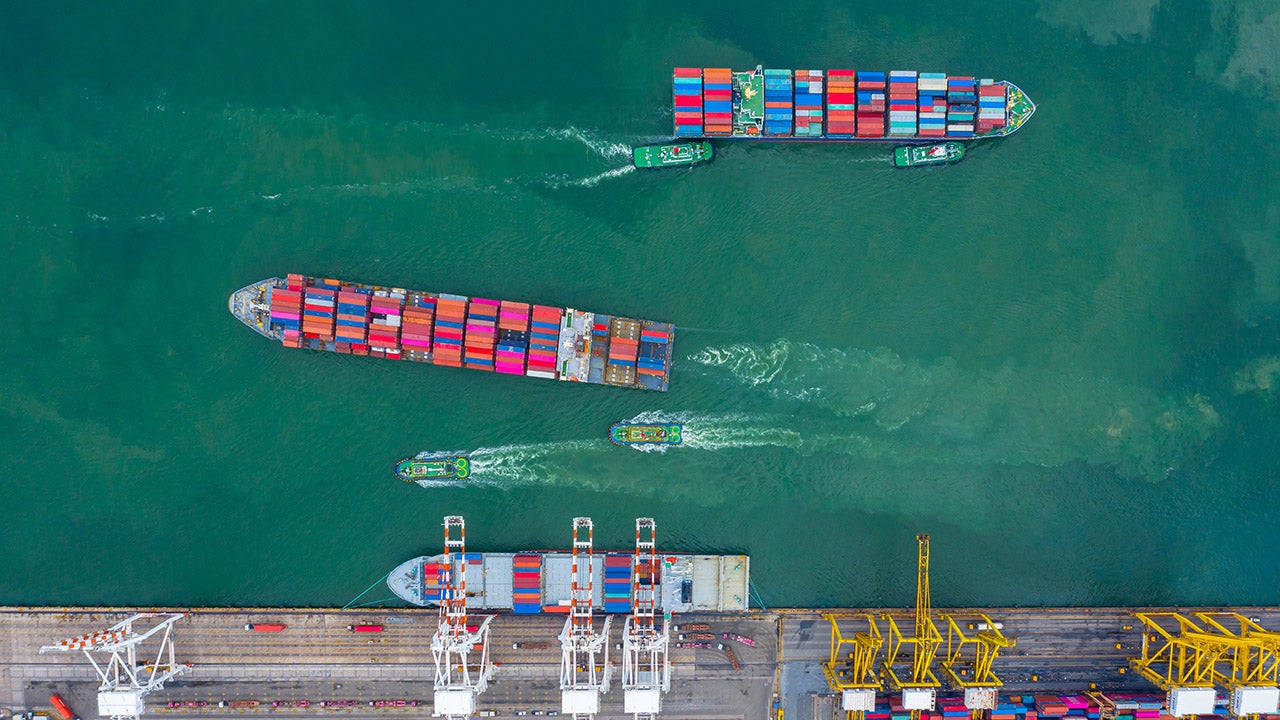Last month, multinational companies came together through the Cargo Owners for Zero Emission Vessels (coZEV) initiative to signal their intention to only purchase ocean freight services powered by scalable zero-carbon fuels by 2040, a timeframe that is squarely aligned with a Paris Agreement 1.5°C trajectory. As part of their ambition statement, these climate-leading customers of the shipping industry made it clear that they are ready to do their part. They also acknowledged they cannot achieve their Paris-aligned maritime decarbonization goal alone.
In addition to collaborating across the shipping value chain to adopt and bring to scale zero-carbon solutions, cargo owners require support from policymakers at both national and international levels. Specifically, signatories to the coZEV 2040 Ambition Statement called on policymakers to “take swift and ambitious action to advance maritime shipping decarbonization…(and) align the shipping industry with goals of the Paris Agreement.” Much of the shipping industry itself has also called for Paris-alignment through the Getting to Zero Coalition’s Call to Action, which was delivered to policymakers in September.
To be clear, aligning the international shipping sector with the Paris Agreement means aiming for full industry decarbonization by 2050, a demand that is gaining momentum among nations of the world.
Meanwhile, shipping’s global regulator, the United Nations International Maritime Organization (IMO), has been heavily criticized for the very low ambition of its current climate goals. The IMO’s target of 50% reduction in greenhouse gases by 2050 (compared to the 2008 baseline) does not align the shipping sector with the Paris Agreement but would allow emissions to continue to grow over the next decade. In his opening remarks during the 2021 UN Global Sustainable Transport Conference, Secretary-General Antonio Guterres reiterated this and called on the IMO and its member states to adopt a new set of “ambitious and credible targets” consistent with the Paris Agreement, emphasizing the urgent priority to decarbonize the sector by 2050.
The drumbeat for zero by 2050 has been growing in the lead up to the IMO’s 77th Marine Environmental Protection Committee meeting, which started today and runs through November 26. This drumbeat included a strong showing in favor of high maritime ambition at the COP26 UN Climate Change Conference in Glasgow, Scotland just earlier this month. While the outcome of negotiations in Glasgow did not meet our highest hopes of guaranteeing a 1.5˚C trajectory for the world, COP26 did see an increase in ambition from both countries and non-state actors for the maritime sector shipping. In addition to several specific announcements, like the Clydebank Declaration to establish green maritime corridors and the First Movers Coalition to accelerate the adoption of zero-carbon solutions in hard to abate sectors, there was a clear shift in favor of full decarbonization of international shipping by 2050.
The conversation in maritime today is no longer focused on questioning if zero by 2050 is a feasible or desirable goal, but rather exactly how the key actors can work together to achieve it. This shift is being attributed directly to private sector leadership through the coZEV 2040 Ambition Statement and the Getting to Zero Coalition Call to Action. Now is the time for governments of the world to step up and do their part.
The International Maritime Organization, shipping’s global regulator, acknowledged these calls for increased ambition at COP26. During his remarks at an International Chamber of Shipping event in Glasgow, IMO’s Secretary-General Kitack Lim said that the IMO “must upgrade our ambition, keeping up with the latest development in the global community.” We couldn’t agree more. An op-ed published today by President David Kabua of the Republic of the Marshall Islands puts the stakes for climate-vulnerable nations in particular in sharp relief.
In addition to setting a Paris-aligned 2050 goal, delegates at MEPC 77 must consider the pathway to 2050, including setting interim targets for 2030 and 2040 that ensure the sector is on a trajectory for Paris-aligned decarbonization over time. Those interim targets should include adoption rates for zero-emission fuels, such as the 5% target that the Getting to Zero Coalition has called for across the shipping industry by 2030. These zero-emission fuels must then be brought to scale through the implementation of market-based and regulatory measures that increase their competitiveness and offer a clear timeline toward closing the price gap between zero-emission and fossil fuels.
Since maritime shipping is a global industry, IMO leadership and action on decarbonization are essential to ensure the entire sector moves in step to set and achieve our shared goals. In fact, from the point of view of the Aspen Shipping Decarbonization Initiative, strong IMO action would dramatically accelerate a virtuous cycle of investment across the value chain. Building confidence is a central challenge that IMO is uniquely positioned to address. We believe many additional cargo owners would be willing to publicly support and invest in this transition if the IMO demonstrated Paris-aligned ambition.
With the global shipping community more united than ever around the need for ambitious action to achieve decarbonization targets, it will be up to the IMO member states and their delegates to meet that ambition, and follow through on their commitments at COP26, starting at MEPC 77.
The time to act is now, and MEPC 77 presents a timely opportunity for IMO to harness the momentum from COP26, rebuff its critics, and demonstrate that it is up to the task.
Additional contributors to this piece include Clarke Williams, Dana Rodriguez, and Greg Gershuny


